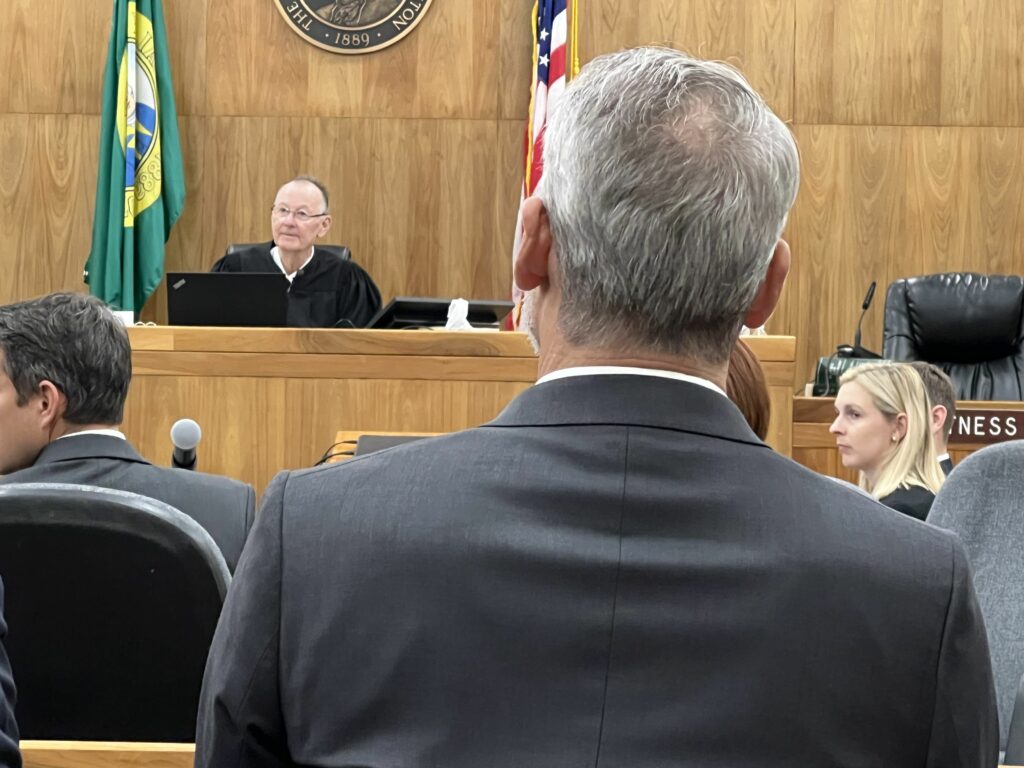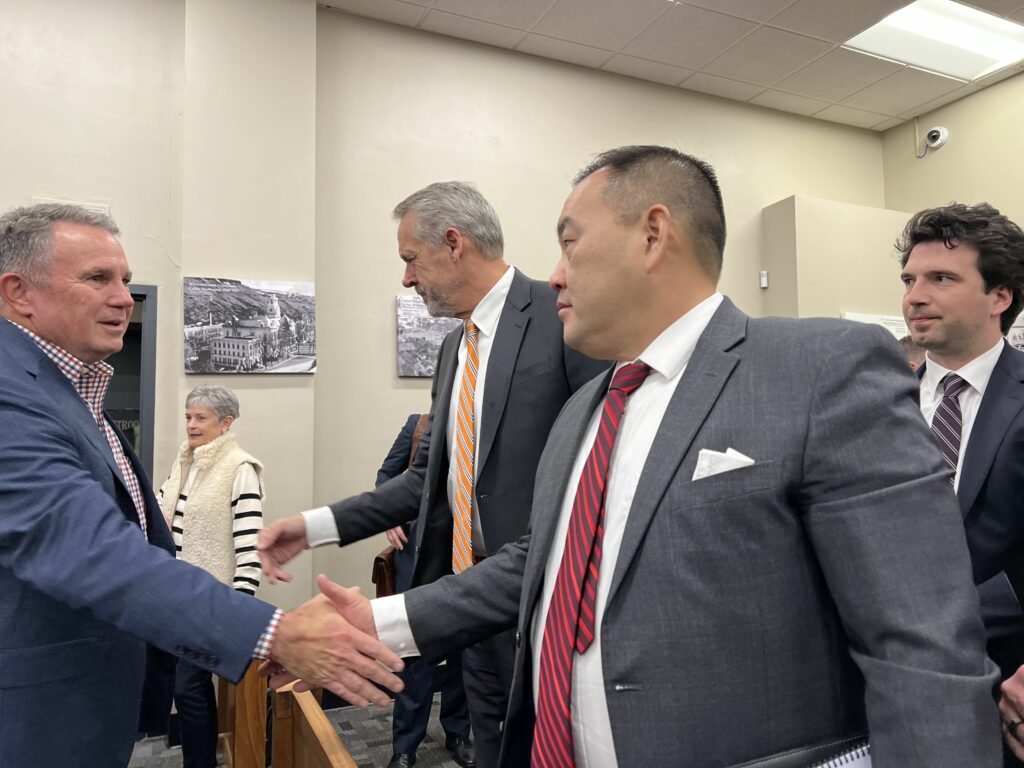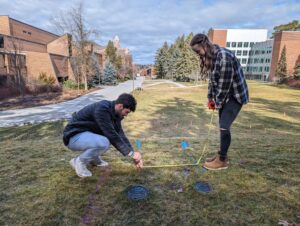Colfax, Wash. – Actions speak louder than words.
Whitman County Superior Court Judge Gary Libey offered that simple reasoning at the end of a 2-hour, 47-minute hearing in Whitman County Superior Court Tuesday, in which he ruled Washington State and Oregon State – and those schools alone – are allowed to govern the Pac-12 Conference.
“I grew up in a place where conduct spoke more than words,” said Libey. “What you do and how you do it is what counts in life.”

In legal terms, Libey granted a preliminary injunction that established WSU and OSU as the sole members of the Pac-12 Board of Governors, and for now, in control of the conference’s assets – a number that’s been reported to exceed $400 million.
The board is in charge of media rights negotiations, approving conference bylaws, inviting new members, and other big picture decisions.
“I feel good, obviously,” said WSU President Kirk Schulz following the hearing. “We felt really strongly about our case, and I thought our legal team did a great job.”
The ruling concludes months of arguments over wording in the Pac-12 bylaws and concerns over what the opponents would do with control of the assets. Ultimately, however, what mattered to Libey were 13 months of precedent, in which the conference removed board members immediately following realignment announcements.
In July of 2022, UCLA and USC announced they were going to join the Big Ten, a move that was to take place on August 2, 2024, a day after the expiration of the current media deal. In a PowerPoint presented to the court, the attorney for WSU and OSU showed evidence that, from July 2022 through August 2023, neither participated on the Pac-12 Board, which met as many at 20 times in that span. The same happened to Colorado, who lost their board position after announcing their departure to the Big 12 in late July of 2023.
OSU attorney Eric MacMichael, who presented on behalf of the plaintiffs, argued that was immediately triggered by the Pac-12 bylaws, which state that if a conference member delivers a “notice of withdrawal” from the conference before Aug. 1, 2024, the school loses its representative on the Pac-12 board.
“A notice of withdrawal is a notice that you are going to withdraw,” said MacMichael, arguing that passage was meant to discourage members from planning to leave the conference, adding they aren’t removed as members, just as representatives of a decision-making board.
That wasn’t the interpretation of the University of Washington. UW attorney Dan Levin argued that the alternative to a “notice” would be leaving in “secrecy,” saying that notice is necessary in order to allow all parties to plan for the future.
Libey pressed Levin at one point in the hearing.
“Doesn’t that damage the conference,” asked Libey, “that a school says, ‘We’re going to withdraw’?”
“I don’t think so, Your Honor,” Levin replied.
Thoughts and interpretations could not overrule actions, however, and UCLA & USC’s removal from the board served as key evidence of the WSU and OSU case.
“This was not a made for litigation interpretation,” said MacMichael. “This is how the conference governed itself.”
UW and the Pac-12 weren’t entirely winless in the courtroom Tuesday, getting Libey to add stipulations to the preliminary injunction. While WSU and OSU will get governing control, they must give the departing 10 notice of any board meetings, and invite all conference members to participate, communicate, and provide input for decision made by the two-member board.
What will OSU & WSU do with Board control? It was a question posed by Libey during the hearing, which MacMichael could not – or did not – answer.
“We have no secret plan,” said MacMichael, to a direct question from Libey about their intentions. MacMichael said they were “shackled” to ten schools with a conflict of interest. “We can’t go negotiate or make plans because there’s no clarity.”
On the topic of clarity, much of what has happened along with the litigation has been an exploration of the Pac-12’s assets, a number reported to be about $420 million, along with its liabilities. They anticipate payouts for lawsuits over media distributions, an anti-trust lawsuit against the NCAA, and other legal battles looming that will affect the Pac-12’s value.
It’s at the heart of why WSU and OSU filed the lawsuit in the first place: They won’t let the departing ten take their share of the assets without bearing their share of the liabilities.
UW, on behalf of those ten, released a statement immediately following the ruling.
“We are disappointed with the decision and are immediately seeking review in the Washington Supreme Court and requesting to put on hold implementation of this decision,” they said. By Wednesday morning, UW had already filed that appeal.
The concern for Washington State and Oregon State, however, moves right back to the athletics, where a transfer portal window for football opens on December 4th, highlighting their need for a 2024 schedule.
“We’ve been working on that in parallel to some of the legal things,” said Schulz. “Our players needs to know, our coaches need to know, and our fans want to know, and the president wants to know.”
Several options remain on the table for the “Pac-2,” which include an invitation to the Mountain West or a rebuilt Pac-12 conference that may look much the same.
The legal victory, despite its inevitable appeals, at least gives them what they haven’t had in months – power over their own future.

















